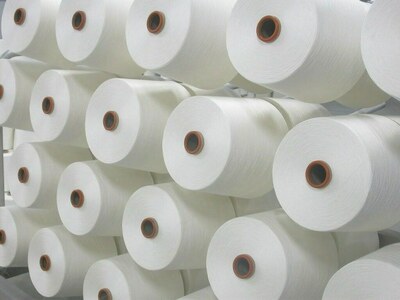PYMA Raises Concerns Over Federal Budget Impact on Textile Sector
Muhammad Saqib Goodluck, the Chairman of The Pakistan Yarn Merchants Association (PYMA), has voiced considerable apprehension regarding the duty frameworks and policy ambiguities detailed in the Federal Budget 2025–26. These issues are significantly affecting the textile industry, especially small and medium-sized enterprises (SMEs).
In a formal communication addressed to the government and the anomaly committee, the PYMA Chairman pressed for prompt measures to resolve critical concerns that impede transparency, competitiveness, and the enduring stability of the domestic textile sector. He pointed out that the budget lacks sufficient clarification on the policy differences between commercial and industrial imports, noting a significant disparity where industrial imports are subject to a mere 1% income tax, while commercial imports face a substantially higher rate of 3.5%.
Calculations from PYMA indicate that the total duty differential between industrial and commercial imports approximates 5.5%, encompassing sales tax value addition. This discrepancy, according to Goodluck, does not justify the administrative complexities and market disruptions it causes. He emphasized that previous discussions suggested a mutual understanding that both sectors would receive equitable treatment.
Saqib Goodluck highlighted that Draw Textured Yarn (DTY) of polyester (HS Code: 5402.3300) already faces an average anti-dumping duty of 13.84%, as imposed on June 17th by NTC, 2025. Given this existing safeguard for the domestic industry, PYMA argues that maintaining or adding any further regulatory duty on DTY is unwarranted. The association strongly advocates for the reduction of the regulatory duty on DTY to 0%.
Addressing customs duties, the PYMA Chairman noted a structural imbalance where raw materials such as Polyester Filament Yarn (PFY) and grey fabrics are subject to a 10% duty, while bleached or finished articles incur a 15% duty. This tiered duty structure disproportionately impacts vital sectors like knitting, weaving, twisting, and finishing, predominantly affecting SMEs. PYMA has urged the government to promptly streamline the duties on all fabric types—finished, semi-finished, and grey fabrics—currently at 15%, to rationalize the cascading effect on polyester value chain items.
PYMA Vice Chairman, Altaf Haroon, also highlighted the inconsistency in duty rates between Partially Oriented Yarn (POY; HS Code: 5402-4600) and Fully Drawn Yarn (FDY; HS Code: 5402-4700). These yarns, not produced domestically, undergo processing akin to that of fibre. While the customs duty on fibre has been decreased from 7% to 5%, PYMA has requested equitable treatment for POY and FDY by aligning their customs duty with fibre at 5%, to ensure fairness and consistency.
Saqib Goodluck concluded by asserting that resolving these matters promptly is vital for preserving a stable, transparent, and competitive global textile industry.
PYMA reiterated its dedication to collaborating with policymakers to ensure that fiscal and trade policies accurately reflect the industry’s needs and realities.



Comments (0)
No comments yet. Be the first to comment!
Leave a Comment